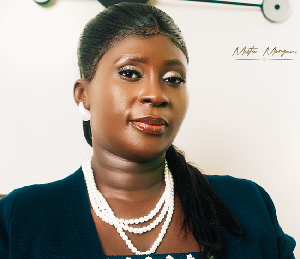Two Alaska soap manufacturers caught attempts to place orders using fake or stolen credit cards last week. Two other businesses hit early this year lost more than $10,000, according to Anchorage's export assistance office.
They are not alone. A Federal Trade Commission survey released in September said 9.9 million Americans were victims of identity theft last year. In that same time, businesses and financial institutions lost nearly $48 billion.
The international call that came in to Glacier Smoothie Soaps two days before Christmas could have signaled a lucrative holiday order. But red flags went up at the unusually large request, made late in the day. When Juneau soap maker Stacie Varner checked the buyer's credit-card information, it turned out to be fraudulent.
"Thank goodness I needed to get international shipping rates," Varner said, which gave her until the following day to check on the credit-card information.
While she was on the phone with the orderer, Varner had her husband dig out guidelines on what information to ask for from card holders.
The buyer, who said he was in Ghana, West Africa, gave Varner the information she asked for, including the issuing bank and its address.
"I thought, well maybe I'm just wrong," Varner said. Because the bank was closed, she checked with the credit-card service she uses.
"They said nothing matches," Varner said.
Being a smaller business, Varner said, if she had not seen an export assistance office warning in the newsletter of Made in Alaska, the state manufacturing association, "I might have been silly and fell for it."
Susan Lang with Seven Sisters Soap Co. in Anchorage also got a call on Dec. 23 via TDY, the phone relay service for deaf and hard-of-hearing people, also from a Solomon Nuhu in Ghana who wanted overnight shipping.
He wanted 50 bars of soap, Lang said, a quantity a business might order.
Lang said Nuhu gave her three numbers, none of which worked as she checked them on a second phone line. She finally said she would process his order when he sent a confirmed cashier's check or money order.
Lang called Made in Alaska to send out an alert.
"People are so busy at this time of year," Lang said, they might be more susceptible to fraud. "You're going on autopilot."
Made in Alaska's newsletter said the first six numbers of a credit card indicate the issuing bank, which can verify whether a card has been reported stolen.
Just checking on a card does not clear businesses of their financial responsibility, though, said Jeff Yates, general manager of Anchorage-based digital mapping software company DAT/EM Systems International.
DAT/EM spent weeks back-and-forthing with an Indonesian customer early this year and the issuing bank of the customer's credit card, trying to take every verification step the bank suggested.
Finally, the money appeared in DAT/EM's account, Yates recalled, and DAT/EM released $8,000 worth of computer graphics cards from the Fed Ex office in Djakarta.
Literally an hour later, Yates said, the bank called to say the card was stolen.
"We've been selling internationally for 15 years," Yates said, with millions in sales. "It was the first and only time we've gotten ripped off like that."
The bank then went into DAT/EM's account, Yates said, and took the money out.
"They referred us back to their very very fine print from years ago, that said if we don't physically see the card, or imprint it, we're liable," Yates said.
"I don't think a lot of merchants realize that."
The day before Christmas, Varner of Glacier Smoothie Soaps had a message waiting for her from Ghana, this time wanting to buy $6,500 worth of merchandise.
"It grossed me out that he was contacting me at all," said Varner, who promptly called the FBI. Then she sent her slippery customer an e-mail.
"I said, 'I'm sure you're aware of all the credit card fraud these days, so I've sent your information on to the FBI,' " Varner said. " 'As soon as they verify you're legit I'll be happy to send on your order.' I haven't heard a thing since."
Varner is happy with the way her cautionary tale wrapped up.
"I had a very Merry Christmas because I didn't get ripped off," she said.
Diaspora News of Thursday, 1 January 2004
Source: Anchorage Daily News












